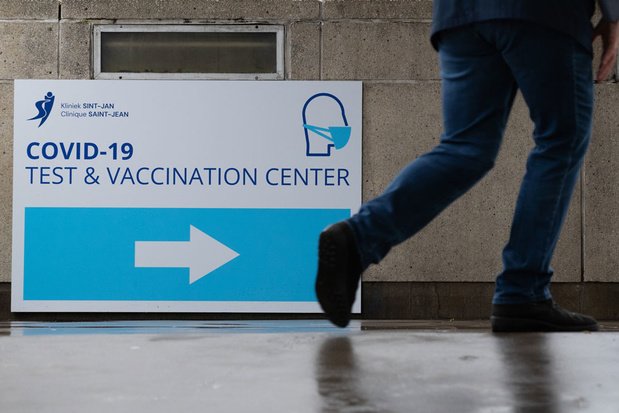Of the 11,000 primary care workers who were invited to be vaccinated in the Brussels-Capital Region, only 3,000 (27%) showed up for their first shot, according to Inge Neven of the Brussels health inspectorate.
Invitations were sent by mail and text message via the federal platform Doclr, but due to the GDPR regulations, the Brussels authorities do not have control over the invitations from the federal notification system.
"Not many people show up, but we do not really know what the problem is. Since the invitations are sent through the federal system, we do not know exactly who is invited," Neven confirmed to the Belga news agency.
"If those people have no email address or a wrong address in the list, they may not have received the invitation," she said.
On Wednesday, the health inspectorate will send a letter by post to those 8,000 who have not (yet) responded. "Afterwards, we can really evaluate it," Neven told Bruzz, adding that this will also be done via Doclr.
Related News
- 'Gigantic problem': Belgium's vaccination campaign further delayed
- Loophole allows Belgians to know which vaccine they will receive
- 'Not inferior': no need to worry about AstraZeneca's vaccine, says Van Gucht
In the largest vaccination centre in Brussels, in Palais 1 on the Heysel, some 1,000 people can already be vaccinated a day, but only about 200 people a day show up now. In the Pacheco centre, there is room for 900 vaccines a day.
Yet, after three weeks, both centres together only administered about 3,000 shots, leaving a lot of vaccines currently unused. "We hope that things will settle down in the coming days and we can move towards that capacity of 1,000 vaccinations per day," she said.
According to the Brussels' University Hospital (UZ Brussel), some of its doctors and nurses have indicated that they were invited to get vaccinated twice.
"Our own registrations were only properly uploaded to Vaccinnet on Tuesday, because the technical process for this was not yet up to scratch," it said.
The fact that the delay in vaccinating people is even greater in the Brussels-Capital Region than in Flanders is due to the fact that some Flemish vaccination centres have continued to send out manual invitations, while the IT system was down, according to Neven.
Unclear reasons for no-shows
At the moment, it is still unclear if the reason why those 8,000 people did not show up is out of ignorance, double bookings, or because they do not want to, according to Neven.
"We also get emails from people who prefer not to get AstraZeneca's vaccine," she said. "That could also be one of the reasons for the lower turnout."
Last week, however, health officials stressed that there is no need to be worried about AstraZeneca’s vaccine, despite premature communication leading to considerable confusion and concern about its efficacy.
“People seem to believe this is an inferior vaccine, but we would like to stress that this is very much not the case,” said virologist and interfederal Covid-19 spokesperson Steven Van Gucht on Friday.
Additionally, Brussels residents who receive an invitation can also choose when to book their appointment themselves, contrary to the system in most centres in Flanders, where everyone is immediately assigned a fixed appointment
"If people prefer to wait a little longer to come to the vaccination centre, that is possible," said Neven, adding that this approach will not be changed for the time being. According to Neven, vaccines are not wasted this way.
Vaccines are already scarce, as deliveries from both Moderna and AstraZeneca are delayed, but there is still room for the 8,000 people who will soon receive a reminder letter. "All those 8,000 people can come and get their vaccine in the next two weeks," said Neven.
Brussels Minister in charge of Health, Alain Maron, wants to wait and see how the situation progresses in the coming days, as a lot of invitations from the Heysel vaccination centre were only sent out last Friday.
On Wednesday, an interministerial conference with all health ministers will be held, where Maron will discuss whether or not the vaccination strategy should be changed.
Maïthé Chini
The Brussels Times

